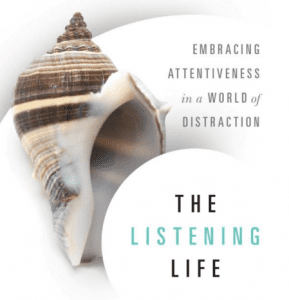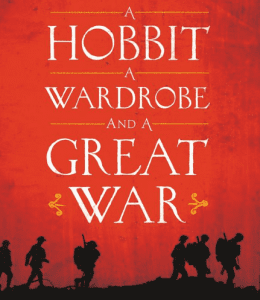This review comes to us from a reader, Josh Rockett. An important topic, and a good introduction to this book.
“Telling stories is easy when they’re about heroic people.”
-Mark Lutz, UnPoverty
We have all heard statistics on poverty. We’ve heard that over 3 billion people live on less than $2.50 a day. But have we heard their stories? Can we picture them? Can we hear them? Would we change our thoughts and actions if we could?
 In his book, UnPoverty: Rich Lessons from the Working Poor, Mark Lutz gives these oft-told statistics voices, faces and names by telling the stories of the richness found in their families, their gratitude and their faith. This collection of stories shows us that the greatest weapon in our arsenal against poverty is the poor themselves. Their ingenuity, faith, and hard work make unpoverty possible, as long as they have the basic tools they need. We in the West can help them toward this end by not only giving generously but by giving strategically as Mark suggests. In his final chapter he details eight non-profit organizations that each focus on a different dimension of poverty such as access to clean water or an education and encourages us to give where we can. Mark is also contributing the royalties from the sale of his book to these charities.
In his book, UnPoverty: Rich Lessons from the Working Poor, Mark Lutz gives these oft-told statistics voices, faces and names by telling the stories of the richness found in their families, their gratitude and their faith. This collection of stories shows us that the greatest weapon in our arsenal against poverty is the poor themselves. Their ingenuity, faith, and hard work make unpoverty possible, as long as they have the basic tools they need. We in the West can help them toward this end by not only giving generously but by giving strategically as Mark suggests. In his final chapter he details eight non-profit organizations that each focus on a different dimension of poverty such as access to clean water or an education and encourages us to give where we can. Mark is also contributing the royalties from the sale of his book to these charities.
Lutz claims that extreme poverty can end in our lifetime. Do you think that is possible?
Lutz states that the greatest weapon in our arsenal on poverty is the poor themselves because of their ingenuity, faith and hard work as long as they have the basic tools. How is this different from traditional approaches to ending poverty?
Lutz writes, “[The poor] are not only a statistic or a topic of discussion and debate, they are unique individuals, made in God’s image with immeasurable worth. Many are extravagantly gifted, energetic and enterprising people, eager to provide for their families and live fulfilling lives. When we see them as God sees them, they radiate beauty and dignity that deserve our respect.”
Lutz grew up in South Africa, the son of missionary parents, during apartheid. He’s now the Senior Vice President of Global Philanthropy for Opportunity International, a non-profit microfinance organization. UnPoverty is primarily a collection of stories of his interactions with those who have been given microfinance loans. Here is a short example of one of these stories:
“Margarita Avila lives in a shack carved into the recess of a cliff in the hillside in Bogota, Columbia. She joined a Trust Group with other women in her village and borrowed about $100 to open a little beauty shop to serve other woman living on the side of the mountain.
She became aware of a family of eight in their village, Juanita Tolosa’s family, who were suffering from illness and hunger and surviving in a dirt-floored tin shack under a concreted bridge. Margarita used the weekly Trust Group meeting to collect food from the members for Juanita Tolosa and her children.
Margarita new what Juanita Tolosa needed most was an opportunity to earn money…The following week at the Trust Group meeting, Margarita reported on what she had learned, asking the others if they would allow Juanita Tolosa to become a member of their group.
The group agreed to take $70 from their combined savings and extend it as a personal loan to Juanita Tolosa.
With the money, Juanita Tolosa purchased material to make popular plastic cabinets, a simple type of modular furniture. Soon she was earning six dollars per day, enough to pay for her daughter’s diabetes treatment. Adding to her husband’s income, the family was eating three meals a day.”
The stories of the voiceless in UnPoverty speak volumes. Some make you want to celebrate and some make you cry, but all of them need to be told. According to Lutz, people remain impoverished not because of laziness or stupidity but because of longitude and latitude. Lutz’s personal reflections on how his interactions with the poor have shaped the way he sees the world and his place within it are humbling and deep.
I get the sense that if I asked Lutz, “What is faith?” or “What is justice?” He would reply, “Let me tell you about my friend in Manila…” He sounds like a certain teacher who also tended to answer questions with stories. Mark’s message is articulated in the words of fellow South African, novelist and activist Alan Paton who prays, “Give us courage, O Lord, to stand up and be counted, to stand up for those who cannot stand up for themselves…Let us seek no other peace but the peace which is thine, and make us its instruments, opening our eyes and our ears and our hearts, so that we should know always what work of peace we may do for thee.”
As Lutz discusses what he refers to as unpoverty, ending poverty in a single generation, I was motivated to act. I wasn’t motivated by statistics, but by story, for it is only when we know someone’s story that we truly long to be a part of it. I saw myself in these stories of strangers across the globe. I saw myself because I too am a part of their story, our story, God’s story. I have a deeper understanding of faith because I have been told the stories of those who have little reason for faith and move mountains. Rich or poor, we have been blessed to be a blessing, we have been changed to bring change. I have seen that unpoverty is a way of life.
Lutz says, unpoverty is possible in our lifetime, “The only reason something like this is impossible is because we choose to make it impossible.”











